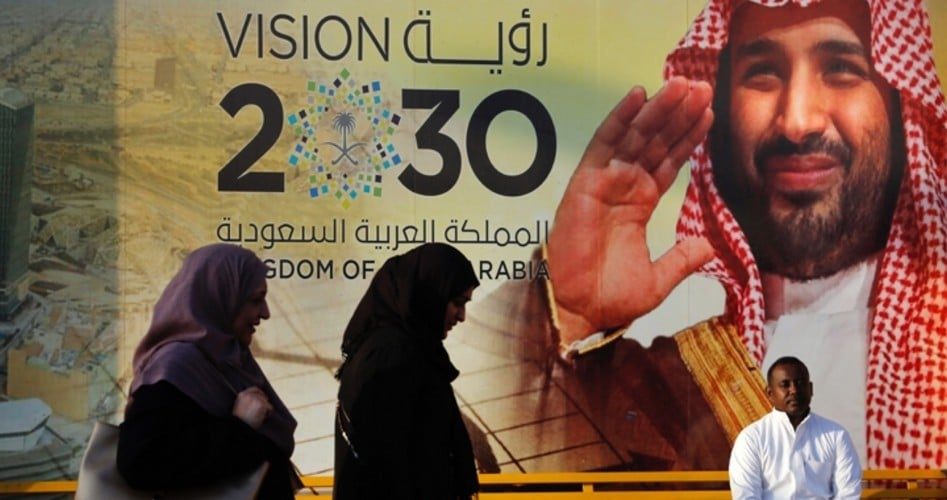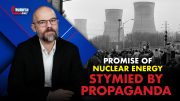
At the end of trading on the first day of the public offering of shares in Aramco — Saudi Arabia’s “crown jewel” and the world’s most profitable company — the company’s CEO Amin Nasser said he was pleased:
We are happy on the results today. And you have seen the market responds to our results, the company will continue to be the leader globally when it comes to the energy sector and at the same time we are looking at sustained and growing dividends to our investors. At the same time we continue our growth strategy, increasing profitability across cycles.
On the other hand, Ellen Wald, author of Saudi, Inc. — her look behind the façade of Crown Prince Mohammed bin Salman’s ruthless oil empire — called the first day’s results a “hollow win,” adding, “The local demand from retail investors wasn’t as high as (Saudi Arabia) hoped for. The investments were almost entirely local and attracted [almost] no money from outside the region.… The government had to manufacture demand [for shares].”
Just 10 percent of offers to buy came from foreign investors, according to Samba Capital, one of Aramco’s financial advisors. The rest came from threats, intimidation, pressure, and blackmail, as reported by The New American.
By nearly every metric, the IPO was a failure: It posted an initial value of the company below bin Salman’s value of $2 trillion and generated just one quarter of the $100 billion he claims he needs to bring his sand and oil empire into the 21st century by diversifying into entertainment, manufacturing, and tourism. By the second day, shares in the tiny Saudi-controlled Tadawul stock exchange had jumped 20 percent, but by that time the prince was out licking his wounds and no doubt wondering how he was going to fulfill the promise of his Vision 2030 without the additional billions.
The real value of the company remains opaque. In the real world, investors can price a company through the market’s valuation of its shares. Not so with Aramco. Just 1.5 percent of the company went on sale on Tuesday, which means that the Prince’s empire controls the other 98.5 percent and, according to the fine print in the “risks” section of the 600-page prospectus made available just a week earlier, he can do pretty much whatever he wants to do with the money.
His government’s desperate need for cash to cover the deficits his kingdom has been running since 2014 forced him to demand a “special” dividend from Aramco of $20 billion last year, and to enter the bond market for the first time in history to obtain another $12 billion. His finance minister just announced that this year’s deficit is $36 billion, while the shortfall next year is expected to exceed $50 billion. The $25 billion from Tuesday’s stock offering is more likely to be absorbed by his government to sustain its welfare-state spending rather than being invested in new projects.
Because most of the offering was purchased under threats, as The New American and others have noted, and subject to many risks not faced by established international energy producers, the real value of those shares won’t be known for months. That’s because built into the purchase agreement is a “lockup agreement” that prohibits insiders from unloading their shares for a year. There’s another incentive to keep the share price from tumbling: Individual investors who hold their shares for at least six months will receive a “bonus” share for every 10 shares they own. Finally, the government itself has sufficient interest in keeping the company’s valuation above market that it will no doubt be more than willing to step in to buy shares following the expiration of that lockup agreement to keep share prices high.
As The New American noted, “this is not a typical free market IPO, but an attempt to sell a tiny sliver of a state-owned and -controlled oil company in order to help its owners pay its bills.” It’s worse than that: In order to raise the $25 billion, the prince had to resort to threats and intimidation to get his Saudi princes — the same people he locked up last year during his inquisition against their corruption — to cough up the money he needs.
This is not an investment. It is extortion on a grand scale.
Photo: AP Images
An Ivy League graduate and former investment advisor, Bob is a regular contributor to The New American, writing primarily on economics and politics. He can be reached at [email protected].
Related articles:
Saudi Aramco’s IPO Too Risky: Institutional Investors Shying Away
Saudi Aramco IPO to be Huge Disappointment
Saudi Arabia’s Aramco IPO Fraught With Danger for Investors
Aramco IPO Plans Pushed Forward Before Oil Prices Drop Further



